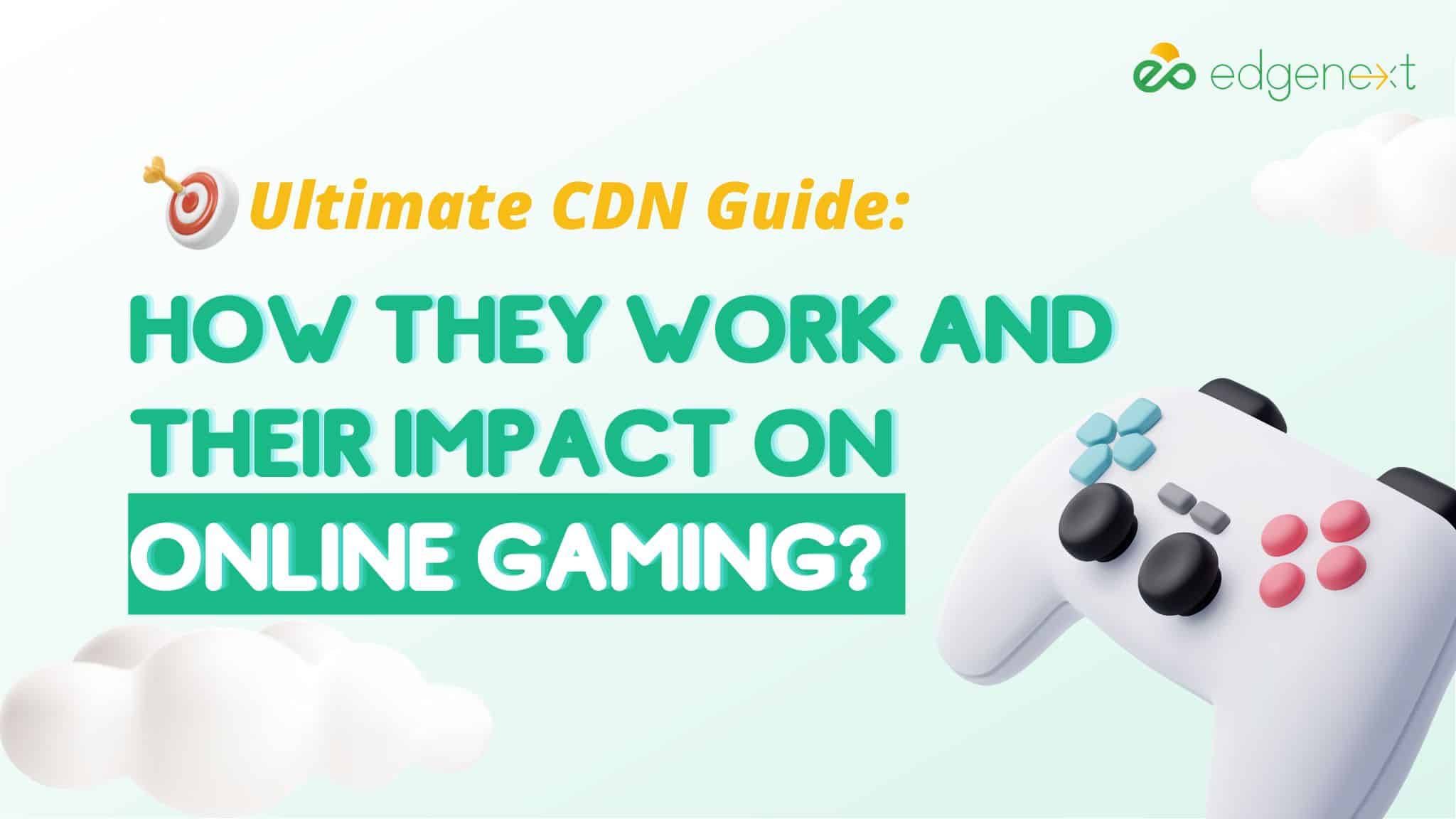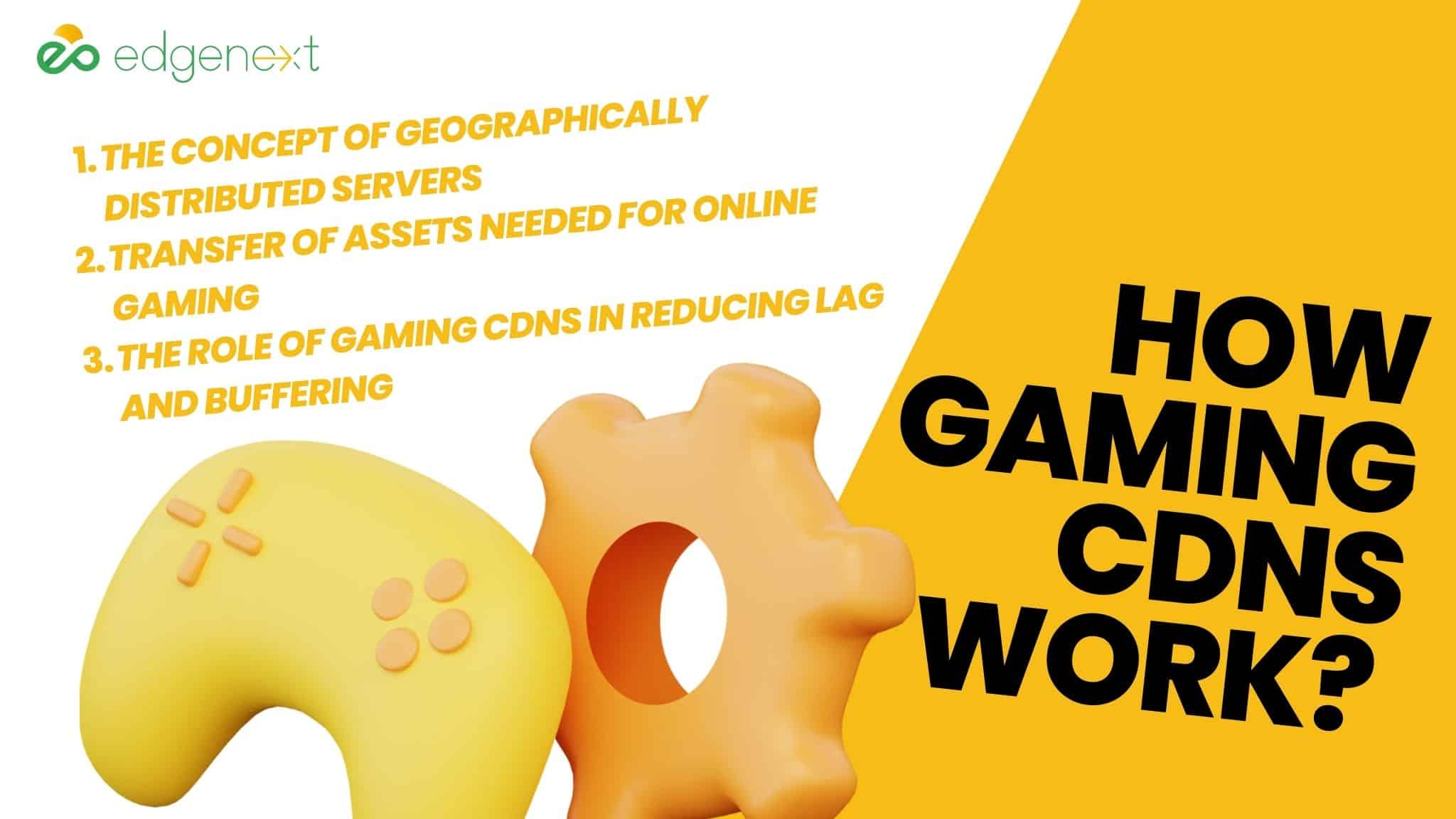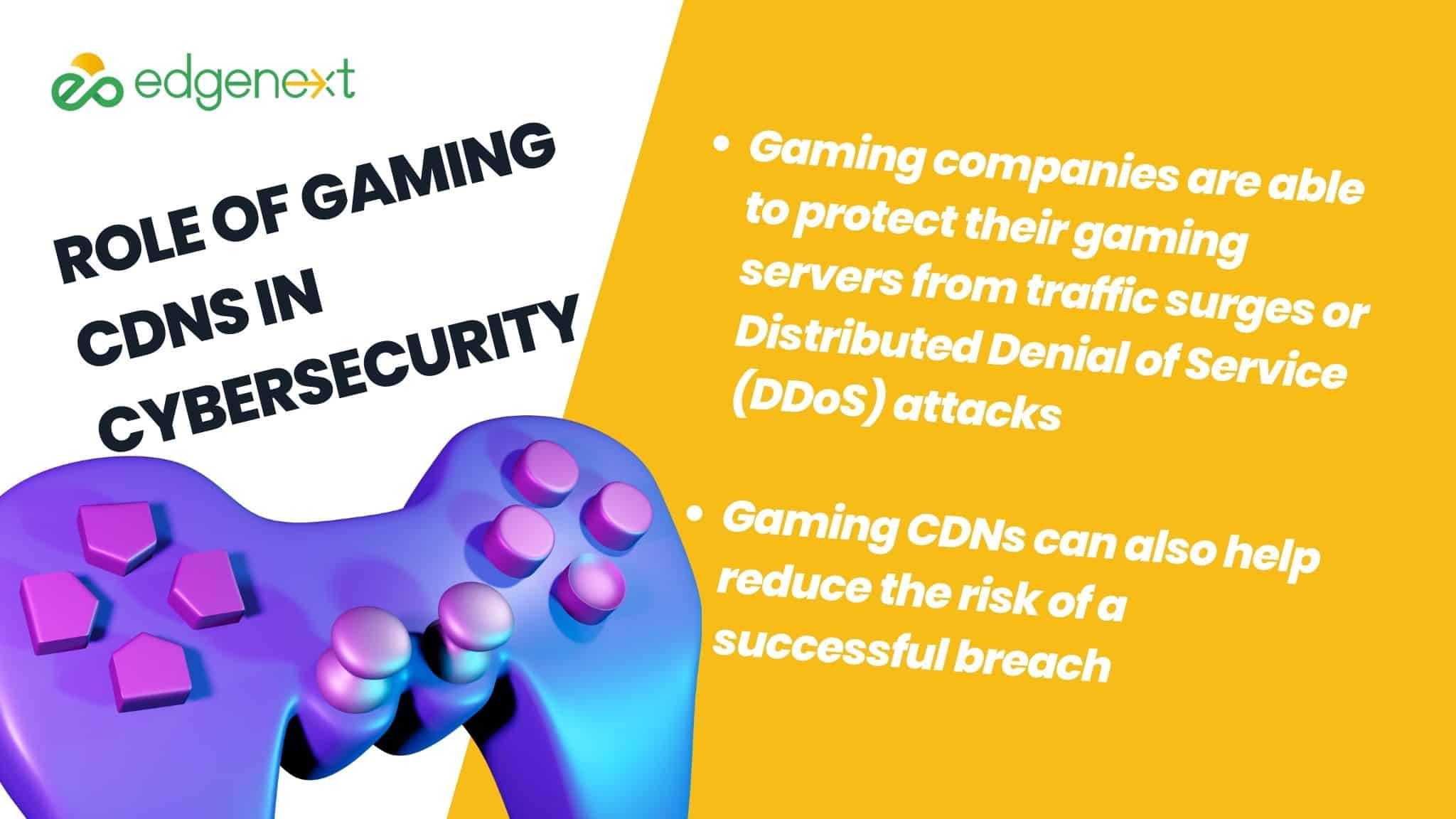
Gaming CDNs, or Content Delivery Networks, are a relatively new technology that provides an efficient way for game developers to deliver content quickly and reliably to gamers worldwide.
They are an essential part of any successful online gaming platform and can significantly impact gaming performance, user experience, and overall success. This article will provide an overview of how Gaming CDNs work, their various benefits, and their impact on online gaming. It will also discuss some challenges in setting up and managing such networks. Finally, it will offer practical advice for game developers looking to implement a Gaming CDN. By understanding more about this technology, developers can ensure that their games reach players as quickly and reliably as possible.
1. The concept of geographically distributed servers
2. Transfer of assets needed for online gaming
3. The role of Gaming CDNs in reducing lag and buffering

Gaming CDNs use a geographically distributed network of servers connected to each other and the internet. These servers cache content such as images, audio, and video files and also accelerate the delivery so that the files can be accessed quickly by gamers around the world. This helps to reduce lag and buffering issues and minimize visible artifacts in graphical downsampling when streaming large files over a slow connection. This is especially important for online multiplayer games since it allows all players a similar experience regardless of their location or hardware specifications.
The transfer of assets needed for online gaming is also optimized with Gaming CDNs since they enable developers to deliver content from multiple locations, which helps maintain an optimal download speed no matter where the user is located. This helps to ensure that all gamers experience the same level of quality and performance, regardless of location or hardware specifications.
Gaming CDNs also play a crucial role in reducing latency when streaming games over the web, providing a fast and stable connection between the game server and its players. This ensures that there are no lag or buffering issues for gamers playing online which helps keep them engaged and immersed in the gaming experience. These benefits make Gaming CDNs an invaluable tool for developers looking to deliver their content quickly and reliably worldwide.
Gaming CDNs have a tremendous impact on online gaming, particularly for multiplayer games. By utilizing geographically distributed servers connected through an advanced caching system, game developers can ensure that all players receive assets quickly and reliably regardless of location or how many other players request the same asset. This significantly reduces lag and buffering times, leading to faster and smoother gameplay experiences for all gamers.
The importance of Gaming CDNs is evident in competitive multiplayer games where real-time interactions between players are essential for success. By eliminating geographical distance in delivering content, gamers worldwide can enjoy a level playing field with similar responsiveness no matter where they are located. Furthermore, efficient distribution of assets ensures that crucial data is delivered as quickly and reliably as possible, allowing for smoother gameplay experiences and improved user retention.
Finally, a Gaming CDN can help developers maintain better cybersecurity standards. By distributing assets across multiple servers, they can reduce the risk of malicious actors gaining access to their systems or game data. This is especially important in games involving financial transactions or sensitive customer data. Developers can ensure that the gaming companies are protected from potential security threats through a reliable content delivery network while all players enjoying smooth online gaming experiences.
Gaming CDNs can also have a significant impact on downloading experiences. Regarding new releases or updates, developers need to ensure that their game is simultaneously available and functional for everyone. This requires handling simultaneous downloads from millions of players around the world. Using multiple servers connected through a gaming CDN, developers can disperse server load across different geographic locations, preventing disruption and ensuring smooth download experiences regardless of where gamers are. Additionally, this allows them to more effectively manage bandwidth consumption, saving money in the long run by reducing costly internet bills.
Using a Gaming CDN also allows developers to better understand their user base by tracking download logs. This is especially important when analyzing and addressing player experience latency issues. Developers can use this data to identify regions with performance issues and adjust their infrastructure accordingly to ensure that gamers have the same experience no matter where they are located. Additionally, this information can be used by developers to indicate how popular their game is in each region, giving them valuable insights into what kind of content players prefer. Finally, using a gaming CDN reduces the risk of server downtime due to overloaded networks or traffic spikes, ensuring that gamers always have reliable access to the content they need without waiting extended periods for content to load.

The role of Gaming CDNs in cybersecurity is becoming increasingly important as the number of online games continues to grow. With a distributed network of servers worldwide, gaming companies can protect their gaming servers from traffic surges or Distributed Denial of Service (DDoS) attacks. By routing requests through multiple servers, malicious actors can be prevented from taking down a single server and disrupting access for all players. This ensures gamers remain connected to the game regardless of potential security threats.
Furthermore, by leveraging advanced caching techniques, Gaming CDNs can also help reduce the risk of a successful breach. Since popular content is cached on multiple servers worldwide, it becomes exponentially more difficult for an attacker to target a specific piece of data. Developers can also use Gaming CDNs to quickly respond to security incidents by pushing new updates and bug fixes across the network in minutes. This allows companies to keep their games secure and protected from malicious actors while minimizing disruption for gamers.
The importance of Gaming CDNs has become increasingly evident in an evolving gaming industry. By leveraging a distributed network of servers around the world, developers can provide gamers with a more consistent experience, no matter where they are located. This results in smoother gameplay and can give players from all regions an equal opportunity to compete on a level playing field by having similar responsiveness globally. Furthermore, Gaming CDNs can also help developers limit the risk of server overload during high-traffic periods and save money by reducing bandwidth costs. In addition, these services offer advantages in terms of cyber security and improve user engagement through real-time analytics and insights into player behavior. With these features combined, it’s clear why Gaming CDNs are becoming an essential part of the online gaming landscape.
Overall, Gaming CDNs provide developers with numerous advantages in performance, cost savings, security, and user engagement. This makes them a valuable resource for any developer looking to optimize their gaming experience and ensure that gamers have a good experience without disruption or delays. These services will likely become even more critical as gaming technology evolves in delivering top-notch gaming experiences worldwide.
Reach out to EdgeNext Gaming CDN Expert and for the future of digital asset protection today!
Reference:
Medianova. (n.d.). CDN for Gaming. https://www.medianova.com/cdn-for-gaming/
Project Management Institute. (n.d.). What does it mean to be geographically distributed? https://www.cdnplanet.com/compare/cloudfront/edgenext/
Fortinet. (n.d.). What is a DDoS attack? https://www.fortinet.com/resources/cyberglossary/ddos-attack#:~:text=a%20DDoS%20attack%3F-,DDoS%20attack%20means%20%22Distributed%20Denial%2Dof%2DService%20(DDoS,connected%20online%20services%20and%20sites.
SolarWinds. (n.d.). IT Glossary: Bandwidth Consumption. https://www.solarwinds.com/resources/it-glossary/bandwidth-consumption
© 2025 EdgeNext Copyright All Right Reserved